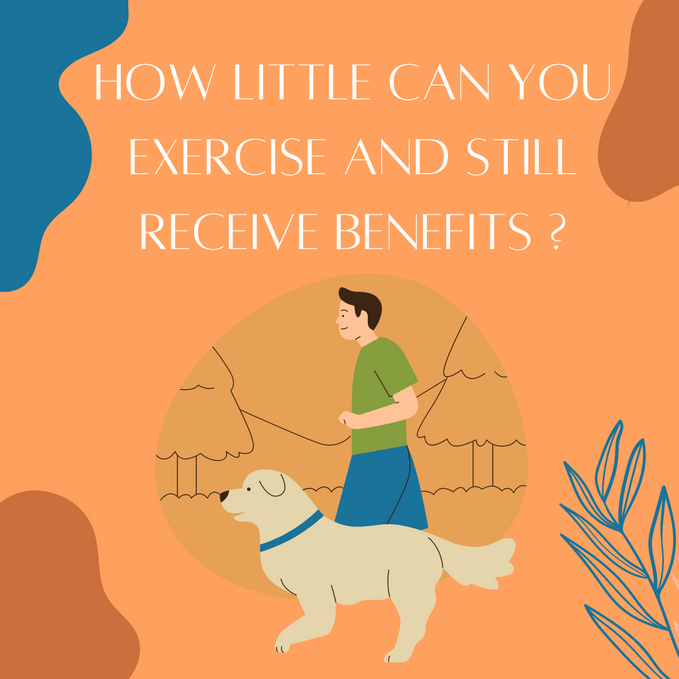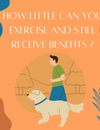No products in the cart.

How little can you exercise and still receive benefits?
Posted by: Didrik Sopler, Ph.D., L.Ac.
Sitting for long hours can elevate post-meal blood fat levels (triglycerides), a risk factor for heart disease. A small study tested whether hourly 4-second intense cycling sprints could improve this (Wolfe AS, et.al.,2020).

How many years can exercise add to your life expectancy?
Posted by: Didrik Sopler, Ph.D., L.Ac.
Exercise produces many health benefits, but can it help us live longer, and if it can how many years can we gain? 654,827 individuals were included in this research (Steven SC, et al., 2012). The study had a median follow up time of 10 years. A physical activity...
Read more

Do you want to feel less anxious? This has shown to help.
Posted by: Didrik Sopler
No one wants to feel anxious, so what can you do? The aim of this research was to find out if omega 3 fatty acids would reduce inflammatory markers and symptoms of anxiety in healthy young adults (Kiecolt-Glaser JK, et.al., 2011). The participants of this double blind placebo controlled...
Read more

One good reason it is important to have a low omega 6 to omega 3 fatty acid ratio
Posted by: Didrik Sopler
Both omega 3 and omega 6 fatty acids are essential which means we have to get them through the diet, since the body cannot make them. The omega 6 fatty acid intake is quite a bit higher than the omega 3 intake the way most people eat now. Omega...
Read more

This is affected by too little quality sleep
Posted by: Didrik Sopler
The following was a small study, but it is interesting because the participants were young females and males with an average age of 28.8 years (Montesinos L, et.al., 2018). Their average body mass index was 23.4 and their resting heart rate was 63.1 which are considered good. Sleep and balance...
Read more

Do you want to react less to anxiety provoking stimuli?
Posted by: Didrik Sopler, Ph.D., L.Ac.
"The world can be a stressful place, and that is most likely not going to change anytime soon. The solution is to get to a state where we are not affected much by things that cause most people to react with anxiety. Is that possible or just wishful thinking? ...
Read more

Oxidative stress is involved in cognitive impairment and Alzheimer’s Disease
Posted by: Didrik Sopler, Ph.D., L.Ac.
Increased oxidative stress has been documented in the frontal cortex in individuals with Alzheimer’s disease and in patients with mild cognitive impairment (Ansari, MA 2010). One of the emerging causative factors associated with Alzheimer’s pathology is oxidative stress. This AD-related increase in oxidative stress has been attributed to decreased levels...
Read more
What damage can high blood sugar and oxidative stress cause?
Posted by: Didrik Sopler
It is common knowledge that having high blood sugar levels is damaging to our health, but in what way is it harmful to us? Having high blood glucose levels causes oxidation of glucose and a reaction causing glycation of proteins. These reactions cause tissue damage and create a lot...
Read more

Stress shortens your telomeres...but why does that matter?
Posted by: Didrik Sopler, Ph.D., L.Ac.
"A telomere is a region of repetitive nucleotides consisting of DNA and RNA at the end of a chromosome that protects the chromosome from deterioration. Shorter telomeres are known to determine cell longevity and shorter telomeres lead to a shorter lifespan. Â Telomeres can therefore give us information on how fast...
Read more
What factors are playing a role in Alzheimer’s, cognitive decline and cardiovascular disease?
Posted by: Didrik Sopler
Alongside oxidative stress and inflammation, altered cholesterol metabolism and hypercholesterolemia also significantly contribute to neuronal damage and to the progression of Alzheimer’s disease (Gamba P, et.al., 2015). Levels of oxysterols derived from cholesterol oxidation and inflammatory mediators have been found to be increased in the brains of Alzheimer’s patients (Testa...
Read more
How healthy is green tea?
Posted by: Didrik Sopler
Green tea seems to be one of the best things you can drink for your health. One of the reasons is that it contains a lot of antioxidants. One of the most important things we can do to stay healthy is to be sure we stay insulin sensitive. When we...
Read more
Tomatoes Influence Breast Cancer Risk
Posted by: Didrik Sopler
You have probably heard that tomatoes are good for your eyes because of an antioxidant called lycopene. Did you know that tomatoes can make a difference with breast cancer risk? The reviewed research investigated just that (Llanos AA, et al. 2014). 70 postmenopausal women at increased risk for breast cancer...
Read more
Meditation: The effect on inflammation and the immune system.
Posted by: tissuerecovery Admin
Be happy, live longer.
Posted by: Didrik Sopler, Ph.D., L.Ac.
We all prefer to be happy, but we may not realize how much of an impact happiness may have on us. There have been numerous studies the last few years on happiness and how it affects our health. The research reviewed here looked at many studies that evaluated subjective well-being...
Read more
Showing: 1 -15 of 15






